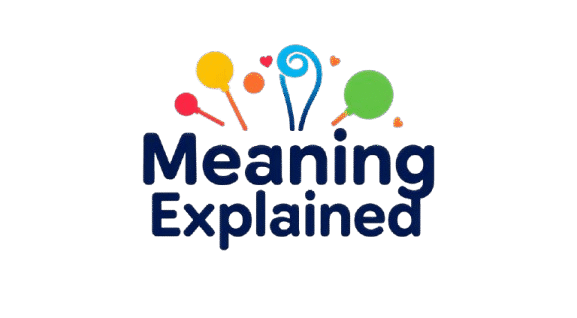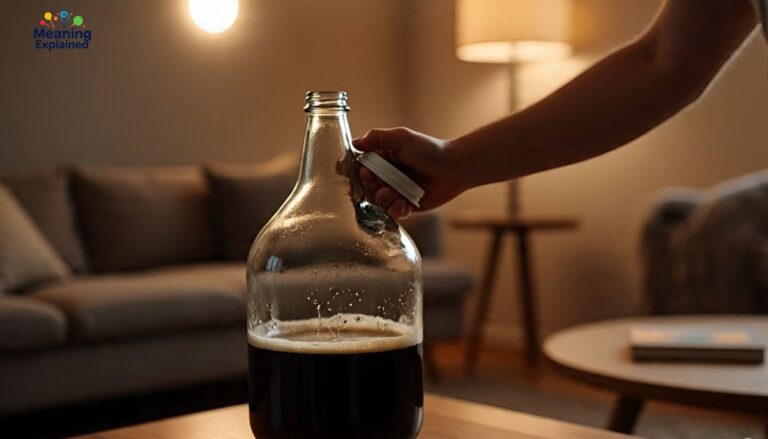The word “growler” is used in many ways, and its meaning can confuse people. It can describe a container for beer, an angry animal sound, or even slang in casual talk. Knowing what it means helps avoid awkward moments. This makes it easier to use the word correctly.
Today, “growler” is common in pubs, social media, and everyday conversations. Some people use it when talking about beer, while others may mean something completely different. The context is very important. It helps you understand what the speaker really means.
Learning polite alternatives for “growler” can be useful in formal settings. This keeps conversations respectful and clear. Choosing the right word can make you sound thoughtful and professional. This guide will explain how to do that easily.
What Does “Growler” Mean?
The term “growler” has varied meanings based on context.
a. Growler as a Container
A growler is a 64-ounce jug, often glass or metal, used to carry fresh beer from breweries. Popular in craft beer culture, it’s perfect for take-home brews.
b. Growler as a Grumbling Noise
Historically, a growler refers to a low, gruff sound, like an animal’s growl. It also describes a person who frequently complains or sounds irritable.
c. Growler in Specialty Or Slang Uses
In niche contexts:
- Nautical: A small iceberg making a growling sound.
- Aviation: A communications jammer, nicknamed “growler.”
Lay of the Land: “Growler” vs. “Hiatus”
“Growler” and “hiatus” are unrelated but can intersect. A hiatus is a break or pause, like a TV show on hiatus. A growler might describe someone complaining about that break. For example: “The project’s hiatus turned some team members into growlers.”
Choosing the Right Sense of “Growler”
a. When talking about beer
Use “growler” for beer containers:
- “Fill your growler with stout at the taproom.”
- “I brought a growler to the brewery.”
b. When describing tone or mood
Use for irritable or complaining people:
- “She’s a growler today, upset about the delay.”
- “His growling attitude is bringing us down.”
c. When using nautical/aviation slang
Avoid niche uses like icebergs or jammers unless in technical discussions.
Polite, Professional, and Casual Alternatives
To avoid ambiguity or harshness, use these alternatives.
A. Polite / Formal Alternatives
- Disgruntled individual: Neutral, respectful.
- Voiced concerns: Diplomatic, professional.
- Concerned party: Formal, non-judgmental.
B. Neutral / Everyday Alternatives
- Complainant: Simple, factual.
- Grumbler: Mild, less intense.
- Someone griping: Clear, everyday tone.
C. Casual / Friendly Alternatives
- Complainer: Direct, informal.
- Whiner: Playful, for friends.
- Moaner: Light British slang.
- Griper: Casual, conversational.
Tone and Nuance: Choosing the Right Alternative

Choose based on context:
- Formal: “Voiced concerns” for reports or emails.
- Neutral: “Grumbler” for mild disapproval.
- Casual: “Whiner” or “moaner” for relaxed chats.
Match the term to your audience to avoid missteps.
11 Examples: Tone, Context, and Best Choice
Example 1 – Formal Email
“Some stakeholders voiced concerns about the timeline.”
Neutral, professional, avoids “growler.”
Example 2 – Business Presentation
“Certain team members expressed reservations about the plan.”
Polished, fits corporate settings.
Example 3 – Academic Paper
“A few participants were disgruntled with the survey.”
Formal, academic tone.
Example 4 – Casual Conversation
“Don’t be a grumbler—let’s move on!”
Light, teasing, conversational.
Example 5 – Friendly Chat
“Stop being a complainer, tell me what’s wrong!”
Direct, playful, informal.
Example 6 – British-English Humor
“He’s such a moaner about the rain.”
Friendly, regional, humorous.
Example 7 – Workplace Slack
“One whiner in the chat, but we’re aligned now.”
Mildly critical, fits the digital workplace.
Example 8 – Report Summary
“Several individuals expressed dissatisfaction with the policy.”
Neutral, formal, professional.
Example 9 – Friend Texting
“Quit whining, I can’t fix your phone!”
Playful, casual, for close friends.
Example 10 – Team Meeting
“Let’s hear from anyone with concerns.”
Diplomatic, inclusive, professional.
Example 11 – Bar or Beer Context
“He grumbled when the growler ran dry—time to refill.”
Combines beer jug and complaining meanings.
Blend: When “Growler” and “Hiatus” Collide
A hiatus can spark complaints:
“The project’s hiatus led to growlers voicing frustration.”
For a softer tone: “The break caused some to express concerns.”
Why You Might Replace “Growler”
- Ambiguity: “Growler” can mean a beer jug, a complaining person, or niche terms like icebergs or jammers, risking confusion in unclear contexts.
- Informal Tone: It sounds casual, which may seem unprofessional in formal settings like reports or emails.
- Negative Connotation: Calling someone a “growler” can feel judgmental or harsh, potentially offending the audience.
- Clarity Issues: Synonyms like “disgruntled individual” or “complainant” are more precise, ensuring your message is clear.
- Context Mismatch: In professional or academic writing, “growler” may not fit the expected formal tone, reducing credibility.
- Audience Sensitivity: Alternatives like “voiced concerns” or “grumbler” are neutral, avoiding unintended offense in diverse settings.
- Tone Flexibility: Using terms like “whiner” for casual chats or “reservations” for formal contexts allows better tone alignment with the situation.
Quick Reference: Alternatives at a Glance

| Tone | Alternative | Description |
| Formal / Polite | Disgruntled individual | Respectful, neutral |
| Formal / Polite | Voiced concerns/reservations | Diplomatic, professional |
| Neutral / Everyday | Complainant | Simple, factual |
| Neutral / Everyday | Grumbler | Mild, less harsh |
| Casual / Friendly | Whiner | Playful, informal |
| Casual / Friendly | Moaner | Light, British slang |
Tone-Mapping Checklist
Before choosing a term:
- Who’s the audience? Clients, friends, or colleagues?
- What’s the context? Formal report or casual chat?
- What’s the desired reaction? Inform or joke?
- Could it offend? If yes, go neutral or formal.
Growler in Popular Usage
- Beer Culture: “Growler fills” are common in craft beer communities.
- Slang: “Growler” as a grumbling person is rare; “grumbler” is more common.
- Media: Characters called “growlers” are often cranky or irritable.
Practical Tips, at a Glance
- Emails: Use “voiced concerns” for professionalism.
- Informal: “Whiner” or “grumbler” for friendly chats.
- Beer Talk: Stick with “growler” for jugs.
- Playful: “He growled when the growler was empty.”
The Takeaway
“Growler” means a beer jug or a complaining person. It’s unrelated to “hiatus” (a pause). Use alternatives like “disgruntled individual” or “grumbler” based on tone and audience. With these options, your communication stays clear and appropriate.
Final Word
The term “growler” is versatile, referring to either a 64-ounce beer jug popular in craft beer culture or a person who grumbles and complains, with rare niche uses like icebergs or jammers. Its dual meanings make it engaging but also tricky, as context dictates its appropriateness. By understanding when to use “growler” for beer or complaints and when to opt for alternatives like “disgruntled individual” or “grumbler,” you can communicate with precision and tact, whether in casual chats, professional emails, or brewery visits.
Choosing the right term enhances clarity and sets the desired tone. For formal settings, phrases like “voiced concerns” maintain professionalism, while “whiner” or “moaner” adds a playful edge in friendly conversations. This guide, with its examples and alternatives, equips you to navigate any scenario—ensuring your words resonate effectively, whether you’re discussing a project hiatus or refilling a growler at your favorite taproom.

